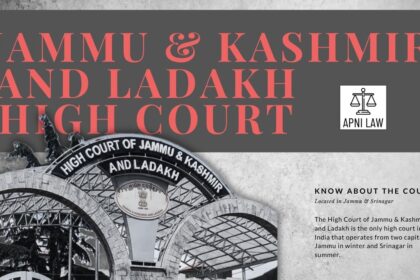Code: Section 408 BNSS
Power of High Court to Direct Further Inquiry or Additional Evidence
408.
(1) If, when such proceedings are submitted, the High Court thinks that a further inquiry should be made into, or additional evidence taken upon, any point bearing upon the guilt or innocence of the convicted person, it may make such inquiry or take such evidence itself, or direct it to be made or taken by the Court of Session.
(2) Unless the High Court otherwise directs, the presence of the convicted person may be dispensed with when such inquiry is made or such evidence is taken.
(3) When the inquiry or evidence (if any) is not made or taken by the High Court, the result of such inquiry or evidence shall be certified to such Court.
Explanation of Section 408 BNSS
Section 408 BNSS grants the High Court the power to direct further inquiry or the taking of additional evidence if it deems necessary for determining the guilt or innocence of a convicted person. This ensures that all relevant facts are thoroughly examined, and any new evidence that may impact the case is considered before a final decision is made.
Key Provisions:
- Inquiry or Evidence by High Court: The High Court can conduct its own inquiry or collect additional evidence when it believes it will help establish the truth about the case.
- Dispensation of Presence: If the High Court decides to gather further evidence or conduct an inquiry, the convicted person does not necessarily have to be present, unless the Court orders otherwise.
- Certification of Results: If the High Court doesn’t personally conduct the inquiry, the results are to be certified to the Court of Session, ensuring the procedure is properly documented and followed.
Illustration
Example 1: Inquiry into New Evidence
After reviewing a case, the High Court feels that additional evidence could affect the conviction. The Court orders further inquiry into new evidence relating to the accused’s innocence, either conducting the inquiry itself or directing the Court of Session to take action. The outcome of this inquiry will then be shared with the High Court for a final decision.
Example 2: Dispensation of the Convicted Person’s Presence
In a case where new evidence is to be examined, the High Court decides that the convicted person does not need to appear in person. The Court proceeds with the inquiry or evidence gathering and later certifies the findings to the appropriate Court.
Common Questions and Answers on Section 408 BNSS
1. What happens if the High Court believes further inquiry is needed in a case?
- Answer: The High Court has the authority to direct further inquiry or additional evidence to be gathered, either by itself or by the Court of Session.
2. Does the convicted person need to be present during the inquiry?
- Answer: No, unless the High Court specifically orders the convicted person’s presence, it may dispense with their attendance while the inquiry or evidence is being taken.
3. How are the results of the inquiry shared with the Court?
- Answer: If the High Court doesn’t conduct the inquiry itself, the results of the inquiry or additional evidence must be certified to the Court of Session.
Conclusion
Section 408 BNSS ensures that if there is a need for further inquiry or additional evidence to be taken in a criminal case, the High Court has the authority to direct the process, either by conducting the investigation itself or by directing the Court of Session to handle it. This section safeguards the right of the accused to a thorough review, ensuring that justice is served based on all relevant information.








